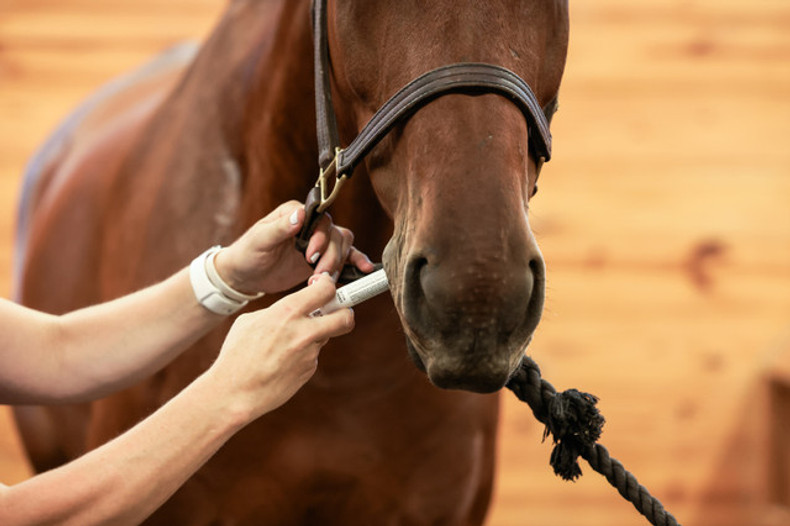Deworming is a crucial aspect of horse ownership, which can sometimes be a bit confusing. But don't worry; we've got your back! In this blog post, we'll share some easy-to-follow tips to make sure your deworming process is a breeze and your horses stay happy and healthy.
1. Follow a Protocol
We love a research-backed plan for everything, and parasite control is no exception. A protocol is like a roadmap for keeping your horses worm-free. You can find the printable version of one of our favorites here. These guides are reviewed by veterinarians, and formatted with seasonality and your horse’s specific needs in mind!
2. Fecal Egg Counts Are Your Friend
We get it, the thought of collecting your horse’s manure might not sound like a good time. But trust us, it's essential! Fecal egg counts conducted by your veterinarian help you determine if your dewormers are doing their job.
Some horses might be "high shedders," while others are "low shedders."
Here's the deal: high shedders need more frequent deworming, while low shedders can stick to a less intense schedule. A good protocol will offer separate recommendations for both. For best results, don't just deworm everyone “X” times a year. Instead, be a savvy horse owner and deworm based on what your horse requires as an individual!
3. Avoid Overusing Dewormers
You may be tempted to use the same dewormer repeatedly because it's convenient or affordable. But be careful: overusing the same dewormers can lead to drug resistance in those pesky parasites.
The long-term costs of drug resistant parasites show in your horse’s wellbeing, and will outweigh the small difference in price for specific medications. It's crucial to rotate between different types of dewormers. Your veterinarian can help you choose the right ones based on your horse's fecal egg counts.
4. Don't Forget About Tapeworms and Encysted Larvae
Tapeworms and encysted larvae can cause some serious trouble if left unchecked. Some signs of encysted larvae include diarrhea and “pot-belly” or a distended stomach. Tapeworm infestations have potential to cause pain and discomfort resulting in colic-like symptoms.
It is recommended to treat for tapeworms once a year, typically in the spring, using praziquantel. For encysted larvae (baby worms with a protective shield around them), use moxidectin in the fall, toward the end of the grazing season.
5. Implement Smart Management Strategies
If you're looking to reduce the use of medications in your horse care routine, there are strategies you can put in place to keep parasites at bay:
Rotate your pastures to avoid overgrazing and more effectively to reduce the risk of infection. More manure on the ground = higher chance for the spread of parasites.
Keep them busy. A horse with free choice pasture or forage will be less likely to rummage around in the dirt and eat manure - which can contribute to higher parasite loads.
Protect their immune system. By providing a balanced diet, fresh water, shelter, and keeping up on vaccinations your horse will be well-equipped to help fend off parasites and keep egg counts as low as possible.
6. Help them bounce back
Deworming helps to keep your horse safe from pesky parasites, but it might throw their gut out-of-whack. This can make digestion tough and put your horse in a bad mood. Don't sweat it though, the good bacteria will come back, and set everything right again! And if you want to help your horse's gut bounce back faster, probiotics can help.
After your dewormer has had a chance to flush out the “nasties”, use a powerful mega-dose probiotic like Gut Reset to help replenish good bacteria. Probiotics in paste or powder form can help get your horse’s gut back on track and avoid digestive upset!
Learn more about the 3 Signs Your Horse Might Need a Probiotic
Remember that deworming isn't a one-size-fits-all solution. It's a science, and it's essential to tailor your deworming program to your horse's specific needs. By using a veterinary-recommended protocol and regularly checking fecal egg counts, you're well on your way to becoming a deworming pro.
If you have any questions or concerns, don't hesitate to reach out to your veterinarian or equine nutritionist for guidance!

